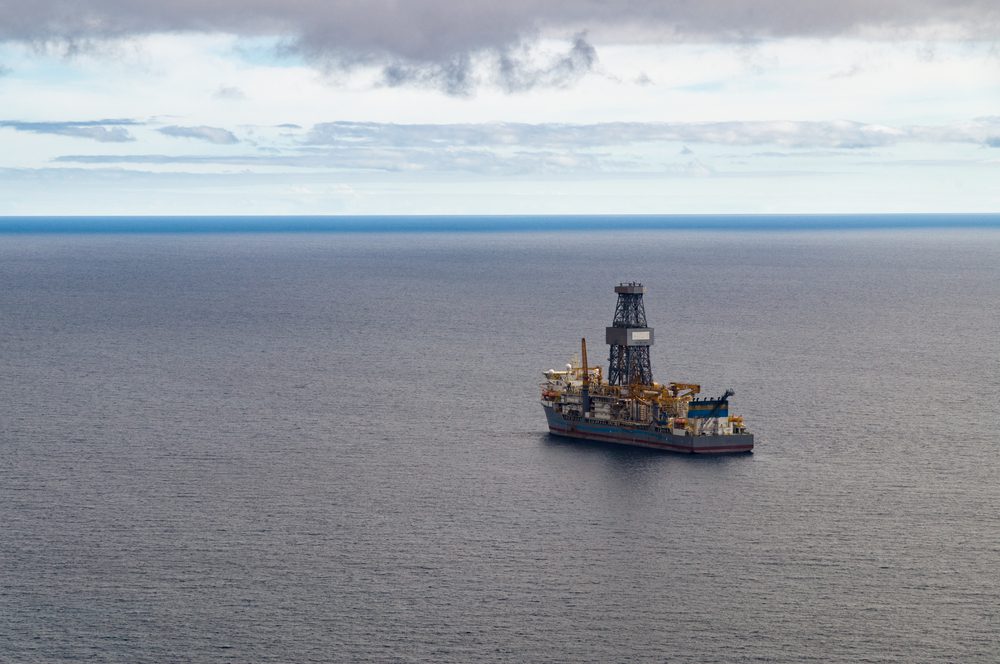By Kevin Crowley and Rachel Graf (Bloomberg) —
It’s rare for disputes between any of the world’s supermajor oil companies to spill out in public. It’s even rarer that one could end up costing $53 billion.
But the oil riches beneath Guyana’s coastal waters are so valuable that Exxon Mobil Corp. is willing to battle over the legal intricacies of a contract signed a decade ago to keep the prize mostly to itself — and away from top rival Chevron Corp.
The stakes in the fight — which has the potential to scuttle Chevron’s takeover of Hess Corp. — couldn’t be much higher.
Exxon said this week it’s considering exercising rights to acquire the Hess stake in a giant offshore oil development in Guyana — the key asset that lured Chevron into the Hess acquisition.
A win for Exxon, which made the Guyana discovery in 2015 and owns 45% of the project, would enhance the stock-market premium it derives from being the sole Western supermajor with a share in the world’s fastest-growing major oil development. Victory for Chevron would see it gain Hess’ 30% stake in Exxon’s marquee project, narrow the valuation gap with its larger rival and provide low-cost production growth for years.
“This is such a material issue to Hess and its value,” said Afra Afsharipour, a law professor at the University of California. “It would not be unusual if somebody like Exxon did that to a competitor, to try to poke holes into a competitor’s deal.”
The Guyana project is unique for its size, rapid growth and high profitability. It’s a particularly rare combination now because, Exxon aside, most oil majors have shied away from megaprojects due to concerns about the environment, peak oil demand and investors’ preference for buybacks and dividends over production growth.
The primary production area, Stabroek, holds 11 billion barrels, and Exxon’s speedy development plan means production will double to 1.2 million barrels a day by 2027, putting Guyana on par with OPEC member Angola. Extracting Guyana’s oil is profitable at prices less than $35 a barrel, nearly $50 below Brent’s current level, in part because of a favorable production-sharing contract first signed with the government in 1999, when the basin was considered high-risk.
It’s no surprise then that Exxon wants to preserve the value of what an executive once described as its “fairy tale” oil discovery.
At issue is a private contract between Exxon, Hess and Cnooc governing Guyana’s Stabroek block. It contains a “right of first refusal” clause, meaning that if one party wants to sell its stake, it must first offer it to the other two.
“When engaging in complex, multi-partner, multi-billion dollar investments around the world, the sanctity of agreements and contracts is essential,” Exxon said in a statement.
Chevron said in a regulatory filing this week that the clause doesn’t apply because it is buying Hess in its entirety, not just the Guyana asset. Exxon said in a statement that it disagrees and has a duty to its shareholders to enforce its preemption rights within the contract “to realize the significant value we’ve created.”
“It appears that Exxon/Cnooc can potentially block Chevron from acquiring Hess Guyana, but not necessarily acquire it themselves,” RBC Capital Markets analyst Biraj Borkhataria said in a note. “This is what is likely up for debate.”
The prospect of Exxon buying Hess’ stake appears remote. If the dispute goes to arbitration and Chevron wins, the deal can close as originally intended. If Exxon wins, Chevron would cancel the takeover and Hess would remain independent.
“There’s no possible scenario in which Exxon or Cnooc could acquire Hess’ interest in Guyana as a result of the Chevron-Hess transaction,” Chevron said in an emailed statement.
Chevron also said it’s “fully committed” to the deal and doesn’t believe the contract or discussions with Exxon will prevent its completion.
Exxon may be taking the stance, “‘We don’t care, you’re not going to get this, we’re just going to exercise our rights,’” said Haag Sherman, CEO of Tectonic Financial Inc., which manages $6.7 billion in assets. “If I’m Exxon, I’m doing the same thing.”
All parties remain in discussions, according to Chevron’s filing. That suggests the dispute may yet end amicably in a negotiated settlement before it gets to arbitration.
“It could ruin the deal, although the chances are low,” said Kevin MacCurdy, director of research at Pickering Energy Partners. “I’d be surprised if this deal ultimately didn’t go through.”
© 2024 Bloomberg L.P.
Editorial Standards · Corrections · About gCaptain
This article contains reporting from Bloomberg, published under license.

 Join The Club
Join The Club











